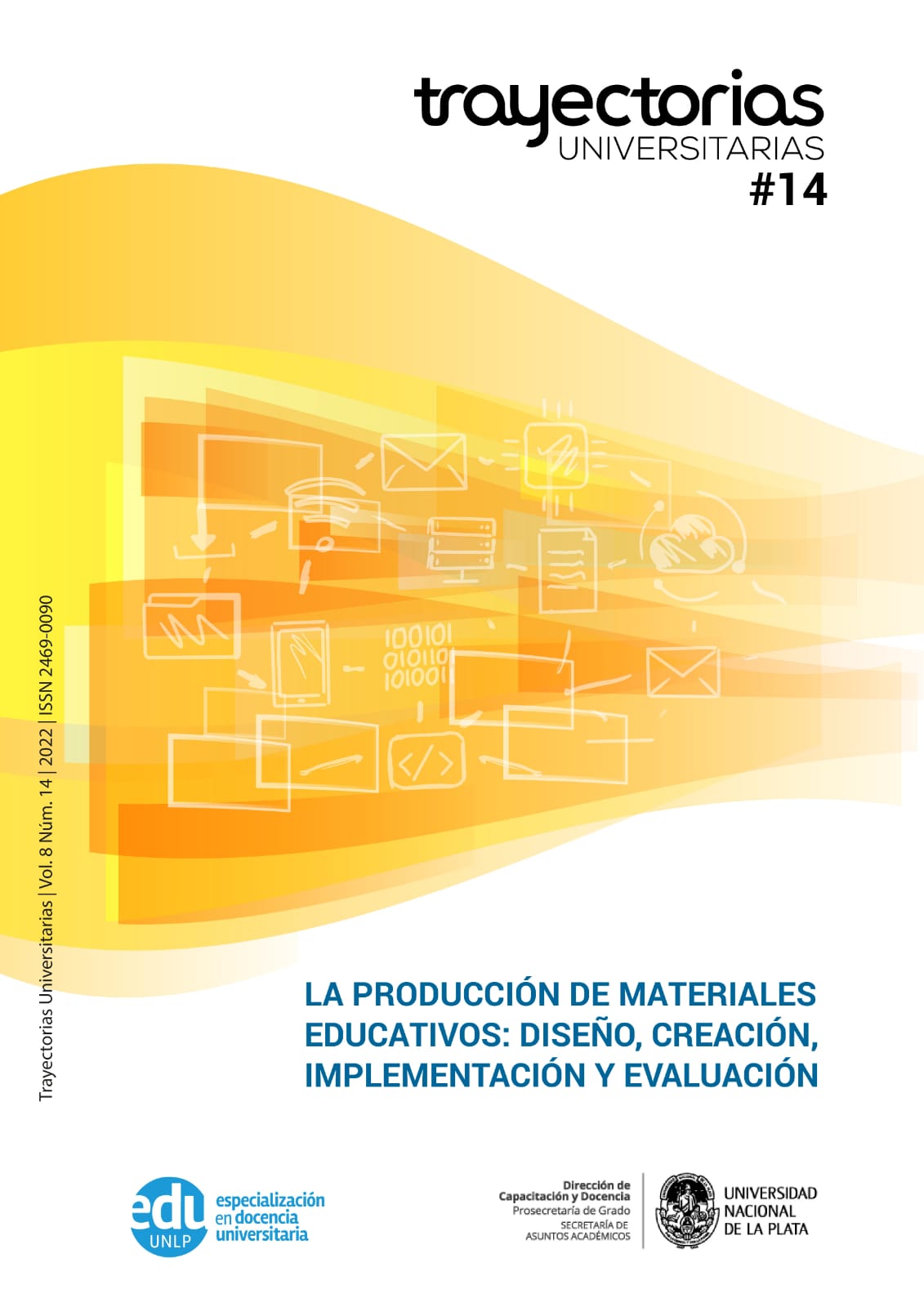The mind in constant motion and the reflective essay as a genre
DOI:
https://doi.org/10.24215/24690090e104Keywords:
mind in motion, reflective essay, uncertainty, writingAbstract
The purpose of this paper is to analyze a classroom experience carried out at the National University of La Plata (UNLP) to teach reflective essay writing in English to higher level students. In the context of English Language 4, a final year subject common to the English Language Teaching, Translation and Licentiate programs, we focus our efforts on the reading and writing of reflective essays from a discursive perspective, which considers students as real actors who operate with language to achieve specific goals through specific interactions. The pedagogical sequence presented here is to be carried out in three stages and it aims at the development of the reflective competence through exposure to definitions of the genre and a variety of reflective texts. We inscribe our work within the pedagogy of genre (Martin & Rose, 2012), derived from Systemic Functional Linguistics (Halliday, 1985) as pedagogical and theoretical framework. The first two stages are carried out collaboratively and they aim at the analysis of the genre itself and the typical uncertain tone of the mind in constant motion, whereas the third one is to be solved autonomously and it is aimed at reflection and written production. The final product of the sequence encompasses the pooling of reflections on the students’ experience with words.
Downloads
Metrics
References
Alexander, L.G. (1967). Essay and Letter Writing. London: Longman.
Bawarshi, A. S. & Reiff, M. J. (2010). An Introduction to History, Theory, Research and Pedagogy. United States of America: Press & WAC Clearinghouse.
Bazerman, C. (1997). The life of genre, the life in the classroom. https://www.researchgate.net/publication/315112527_The_Life_of_Genre_the_Life_in_the_Classroom.
Bhatia, V. K. (2004). Worlds of Written Discourse. A Genre-based View. London: Continuum.
Boyd, E. M. y A. W. Fales. (1983). Reflective learning: Key to learning from experience. Journal of Humanistic Psychology, (23)2: 99-115.
Crotto, C. “On being on top of everything”. https://docs.google.com/document/d/18wivT66loHApY1PwnFQO322W6jGCNmwZu9ozq24ByJc/edit?usp=sharing.
De Montaigne, M. (1580/1948). Ensayos. Buenos Aires: W.M. Jackson editores.
Escobar, E. “The word for the world, the world for a word”. https://docs.google.com/document/d/18wivT66loHApY1PwnFQO322W6jGCNmwZu9ozq24ByJc/edit?usp=sharing.
Halliday, M.A.K. (1985. An Introduction to Functional Grammar. London: Edward Arnold.
Iozzi Klien, A. y D. Cavallari (2015). The Prosification of Culture and the Creative Essay of the Twentieth Century: Questions on a Literary Genre. Bakhtiniana. 10:104-118.
Knapp, P., & Watkins, M. (2005). Genre, text, grammar: Technologies for teaching and assessing writing. Sydney: UNSW Press.
Lenney, D. (2022) "Against Knowing” | Brevity: A Journal Of Concise Literary Nonfiction". Brevitymag.Com. https://brevitymag.com/craft-essays/against-knowing/.
Martin, J.R. & Rose, D. (2012). Genres and texts: living in the real world. Indonesian Journal of SFL, 1 (1), pp. 1-21.
Ruhl, S. (2015). 100 Essays I Don't Have Time To Write. Farrar, Straus And Giroux, 2015, p. 104.
Shrand, B. (2022) "The Essay And The Art Of Equivocation | Brevity: A Journal Of Concise Literary Nonfiction". Brevitymag.Com. (Disponible en: https://brevitymag.com/craft-essays/the-essay-and-the-art-of-equivocation/.
Smith, C. S. (2003). Modes of Discourse. The Local Structure of Texts. UK and NY: CUP.
Swales, J. (1990). English in Academic and Research Settings. London: Cambridge Applied Linguistics.
Downloads
Published
How to Cite
Issue
Section
License
Copyright (c) 2022 Dolores Aicega, Ana Soledad Moldero, María Julia Pich, Laura Mariela Rodríguez

This work is licensed under a Creative Commons Attribution-NonCommercial-ShareAlike 4.0 International License.
La aceptación de un original por parte de la revista implica la cesión no exclusiva de los derechos patrimoniales de los/as autores/as en favor del editor, quien permite la reutilización, luego de su edición (postprint), bajo una Licencia Creative Commons Atribución-NoComercial-CompartirIgual 4.0 Internacional (CC BY-NC-SA 4.0).
Acorde a estos términos, el material se puede compartir (copiar y redistribuir en cualquier medio o formato) y adaptar (remezclar, transformar y crear a partir del material otra obra), siempre que a) se cite la autoría y la fuente original de su publicación (revista y URL de la obra), b) no se use para fines comerciales y c) se mantengan los mismos términos de la licencia.
La cesión de derechos no exclusivos implica que luego de su edición (postprint) en Trayectorias Universitarias los/as autores/as pueden publicar su trabajo en cualquier idioma, medio y formato; en tales casos, se solicita que se consigne que el material fue publicado originalmente en esta revista.
Tal cesión supone, también, la autorización de los/as autores/as para que el trabajo sea cosechado por SEDICI, el repositorio institucional de la Universidad Nacional de La Plata, y sea difundido en las bases de datos que el equipo editorial considere adecuadas para incrementar la visibilidad de la publicación y de sus autores/as.
Asimismo, la revista incentiva a los/as autores/as para que luego de su publicación en Trayectorias Universitarias depositen sus producciones en otros repositorios institucionales y temáticos, bajo el principio de que ofrecer a la sociedad la producción científica y académica sin restricciones contribuye a un mayor intercambio del conocimiento global.





















